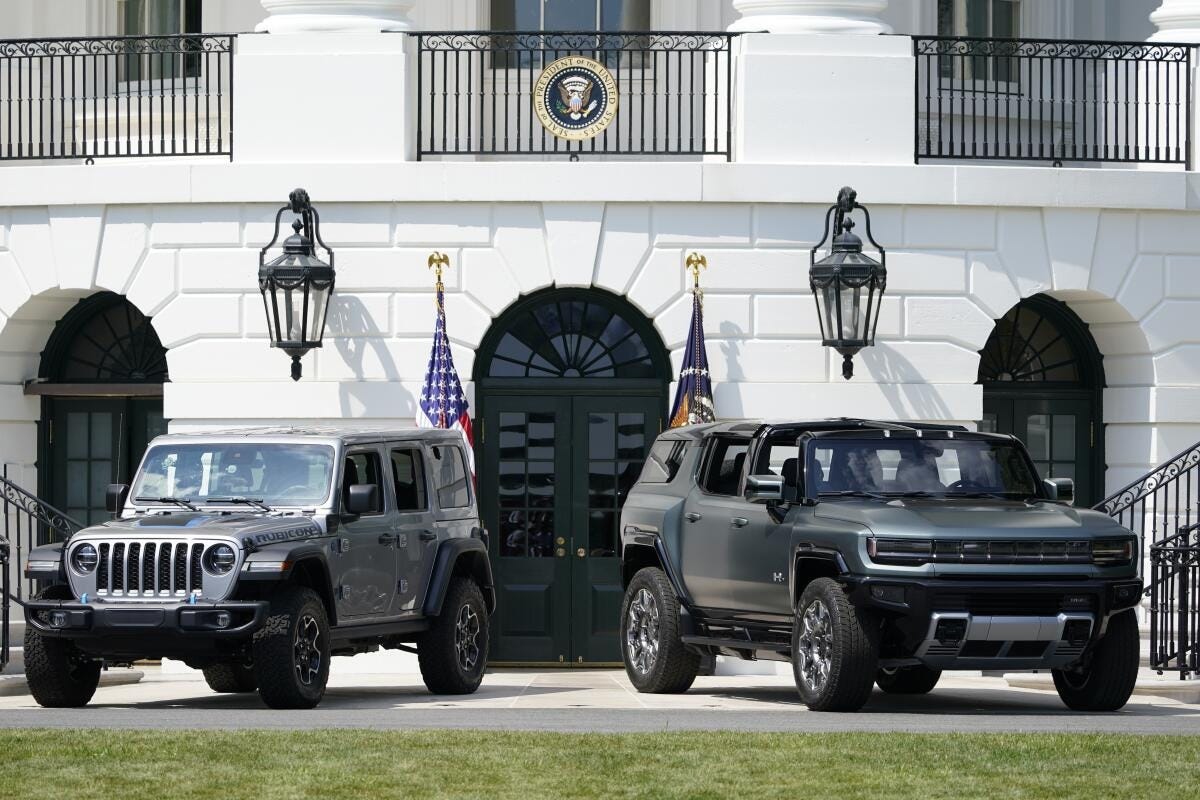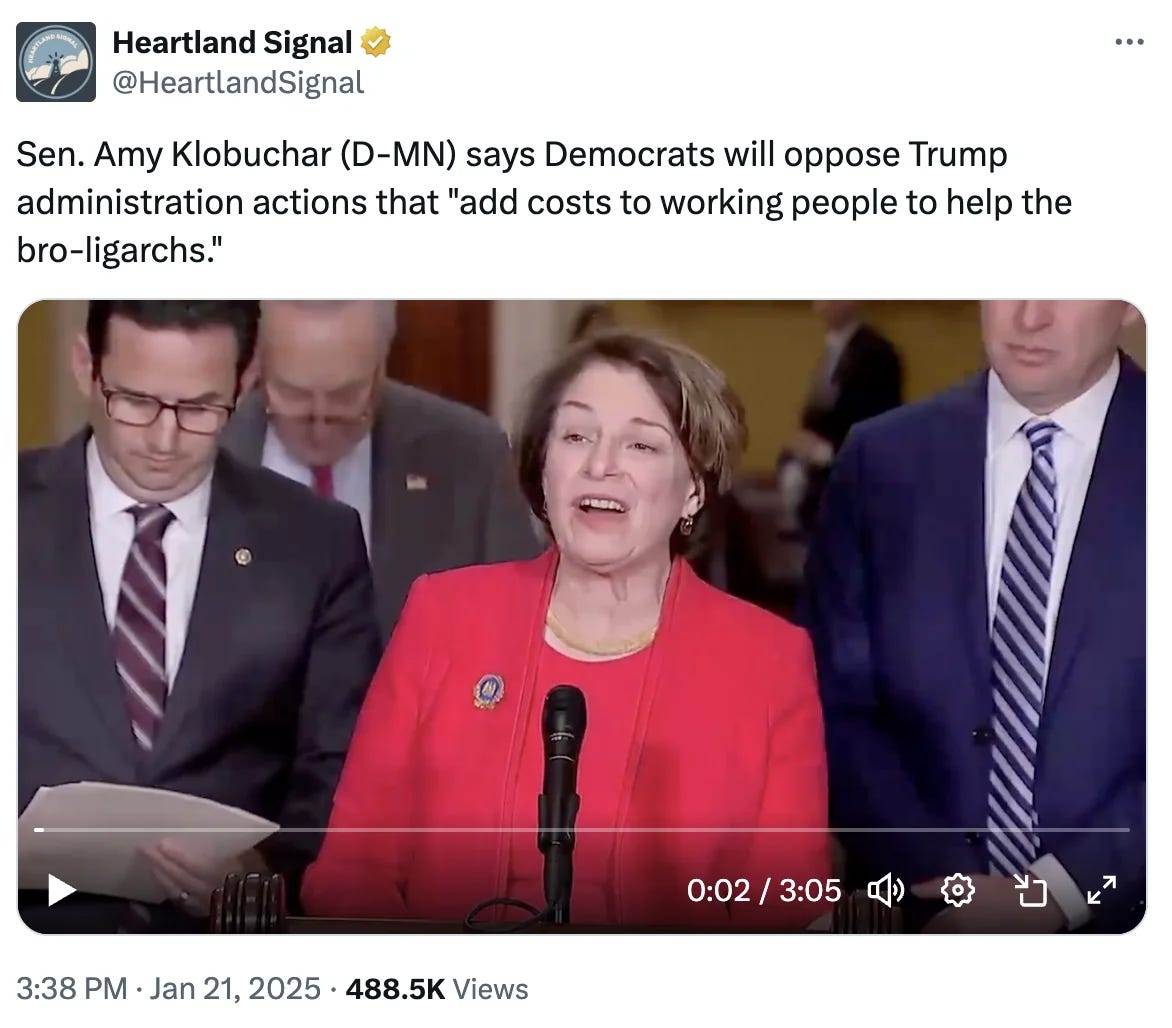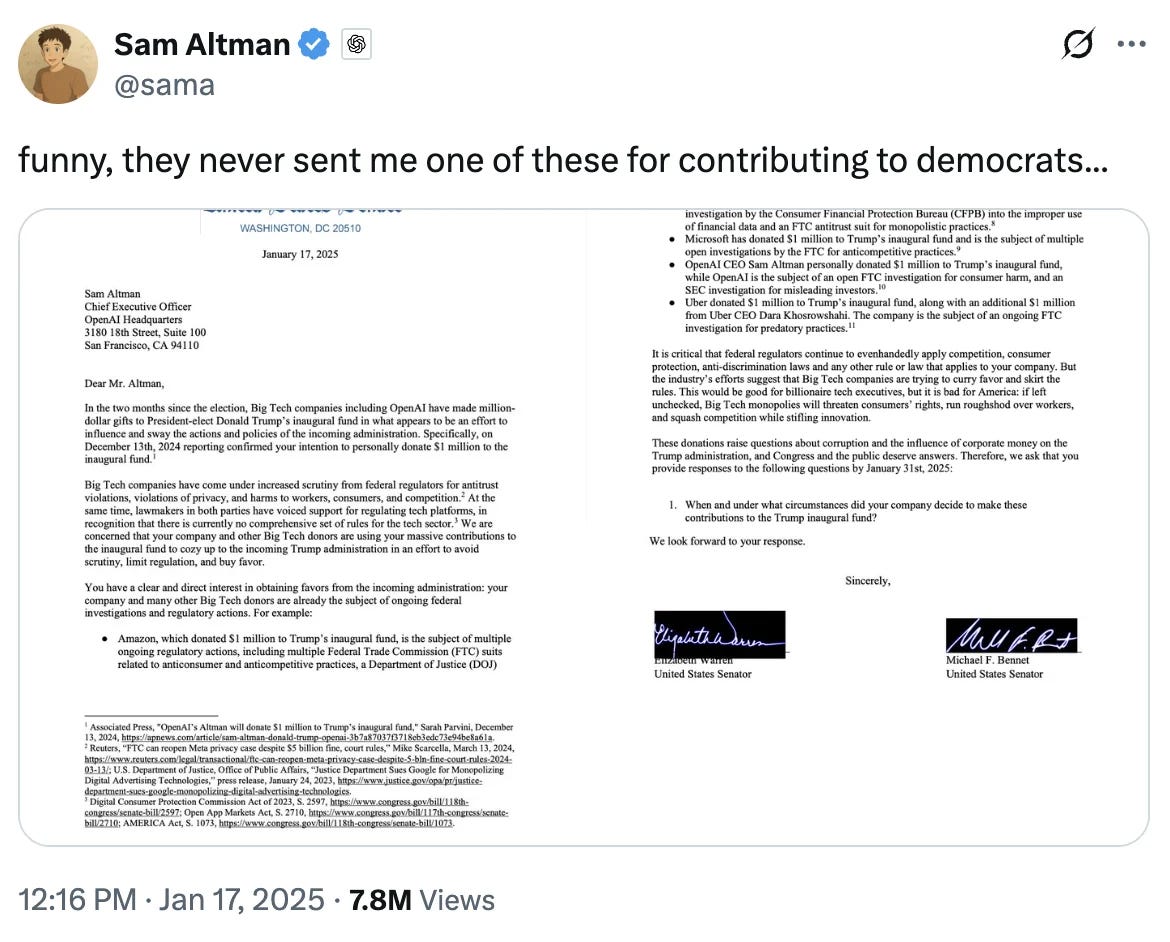Smart Tech Policy Isn’t About Whether You Like A CEO
President Biden’s administration wanted to dramatically accelerate electric vehicle adoption – which made it all the more baffling when Biden held a 2021 White House EV summit that snubbed Elon Musk and Tesla.
The event invited Detroit’s “big three” automakers to tout EVs, “leaving off the guest list the company that sells more than any other: Tesla”. In other words, America’s leading EV manufacturer was excluded, reportedly because Tesla’s workforce isn’t unionized while the invited automakers’ are.
Elon Musk noticed, saying “You know, Biden held this EV summit, didn’t invite Tesla,” Musk responded. “Invited GM, Ford, Chrysler, and UAW. An EV summit at the White House! Didn’t mention Tesla once, and praised GM and Ford for leading the EV revolution. Does this sound maybe a little biased or something? And you know, just, it’s not the friendliest administration. Seems to be controlled by unions as far as I can tell.”
By letting a personal grudge overshadow outreach to the nation’s EV leader, the White House put personal bias ahead of policy progress. It was a self-defeating snub that did nothing to help the cause of electric cars.

Biden Made it Personal
The EV Summit wasn’t an isolated case. President Biden has openly expressed his dislike for certain tech CEOs. In a 2020 interview, he said flat-out “I’ve never been a big Zuckerberg fan. I think he’s a real problem.”
It’s rare to hear a president use such harsh and personal language about the head of a major American company. But that set the tone for how the Biden Administration should approach Meta and tech policy generally - with personal animus.
Let’s be honest: The public personas of many tech moguls can beinsufferable. Elon Musk’s antics and X tirades are ridiculous and his massive SuperPAC expenditures helped propel Donald Trump into office.
But the government needs to be clear-eyed about what space capabilities it needs. If SpaceX is the best provider, it should get the contract.
If the damage Musk has done to federal government agencies through DOGE makes you not want to buy a Tesla, I completely understand. But administration officials should be acting in the interests of the United States. If an EV Summit is worth the President’s time, then it is worth having America’s leading EV maker present.
Grudges Shouldn’t Drive Tech Policy
Policy should not be made on the basis of whether politicians like a CEO personally. We don’t run other industries this way. For example:
Health care: Democrats didn’t shape COVID vaccine policy based on their feelings about Pfizer’s CEO. They worked with pharma companies to get shots in arms, whatever their opinion of the executives.
Aviation: We don’t decide aviation safety or infrastructure funding because we “like” or “dislike” the CEO of United Airlines.
Telecom: No one in Congress suggests dismantling telecom companies or increasing broadband taxes because they think the heads of AT&T or Comcast are arrogant.
In other words, a sign of a mature policy conversation is separating your personal feelings about individuals from public policy.
Democrats can despise a CEO’s politics, lifestyle, and tirades and still recognize the value of their company’s products andthe necessity of working with them. Yet when it comes to tech and innovation, Democrats are too often stuck on executive personalities.
Good Government Over Hypocrisy
When Donald Trump took office again in 2025, his staff seated several high-profile CEOs on stage at Trump’s inauguration. Senator Elizabeth Warren and others pounced, calling on Democrats to run against Silicon Valley “broligarchs”.
Just days before the inauguration, Warren and Senator Michael Bennet sent letters to tech CEOs blasting their “million-dollar gifts to President-elect Trump’s inaugural fund” as attempts to “curry favor and skirt the rules”. “We are concerned that… Big Tech donors are using your massive contributions… to cozy up to the incoming Trump administration in an effort to avoid scrutiny, limit regulation, and buy favor,” the senators wrote. This was Democrats’ reflexive response: see tech leaders standing beside Trump, assume corruption and influence-peddling.
OpenAI’s CEO Sam Altman, one of those who donated $1 million personally, had a tart retort:
There are many examples of Donald Trump using the government and the powers of the presidency to act in a transactional fashion, reward those who praise him, make corrupt deals, and punish his perceived adversaries. Democrats should absolutely be critical of President Trump and his administration over instances of corruption, favoritism, and transactional relationships
But Altman’s response highlights the risk of hypocrisy and “both sides-ism”. It cannot appear that when the tech industry donates to Democrats it is acceptable, but money given to Republicans is cause for retaliation.
San Francisco Supervisor Connie Chan recently illustrated the risk of hypocrisy. After Salesforce CEO Marc Benioff made comments appearing to support a Trump threat to send the National Guard into SF, Chan was livid.
She declared Benioff’s remark the “last straw” and rushed to respond by proposing new local taxes on Uber and Waymo rides in San Francisco. Taxing rideshare should be debated on the policy merits of its impacts on consumers and revenues. But proposing a tax to spite a tech mogul’s offhand remark is not a sound way to govern.
To be clear, scrutinizing and regulating technology companies, and ensuring compliance with the law is good government. There’s nothing wrong with demanding transparency and guarding against special treatment. What is wrong is letting personal animosity or political theater derail rational policymaking. Demonizing tech CEOs as “broligarchs” might feel cathartic, but it doesn’t get us better tech policy.
Policy Over Personalities
Democrats can and should be tough on powerful companies’ behavior. But we need to keep perspective: millions of Americans use and love the products these companies create.
By wide margins, people “broadly like and appreciate the services” tech firms provide; connecting with friends and family online, convenient next-day deliveries, life-saving medical research on cloud platforms, you name it. Tesla alone has put hundreds of thousands of electric cars on the road, helping reduce emissions, regardless of what one thinks of Musk personally.
As a political matter, the overwhelming majority of Americans have never met a billionaire and don’t have particularly strong personal feelings about them one way or another. Ordinary people’s opinion of Amazon is far more shaped by getting packages quickly than by what they know about the company’s CEO.
If Democrats want to guide the tech sector in the public interest, we have to separate the person from the product. We cannot reflexively thwart technological progress or alienate millions of tech users because of a personal vendetta against the latest tech executive in the news. We gained nothing by shunning the nation’s top EV manufacturer from an EV event, or by refusing to engage with a social media platform used by billions because we “hate” its founder.




Benioff’s comments on sending the NG to SF to help with horrid deportations, business leaders’ donations cozying up to Trump, both for his inauguration and his absurd ballroom project, and Musk’s actions with DOGE that caused harm (and literally took lives, with to the ending of USAID), are serious issues that you cannot simply tell people to “separate the person from the product” about.